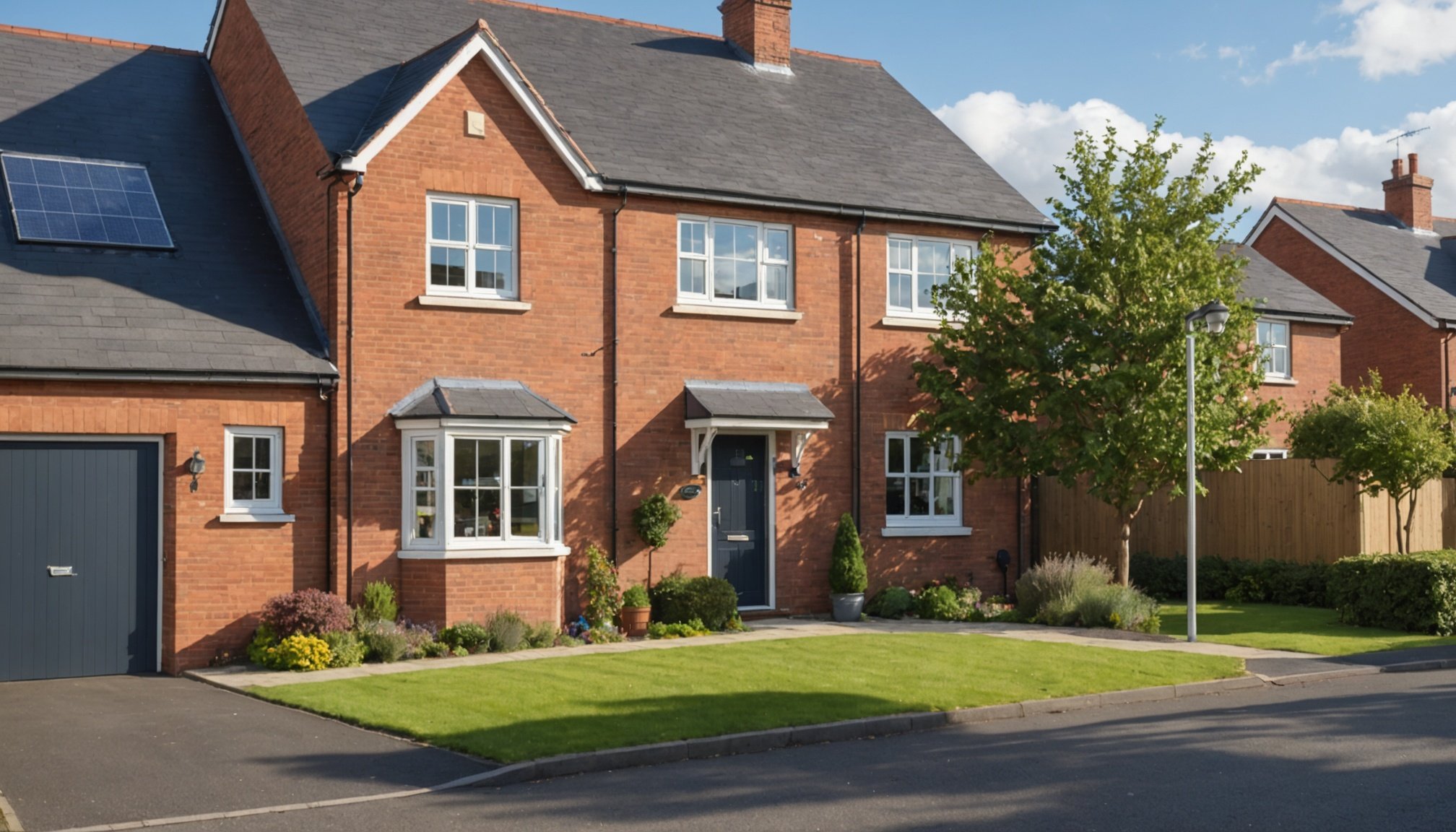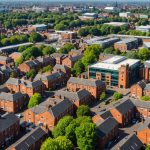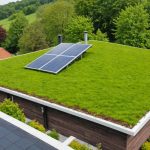Water efficiency is becoming increasingly important as households in the UK face rising costs and environmental challenges. Innovative smart tech solutions are transforming the way we consume and manage water at home. From intelligent appliances to smart irrigation systems, these technologies empower homeowners to reduce waste and optimize usage. Embracing these advancements not only saves money but also supports sustainability efforts. Explore how you can harness these solutions for a more water-efficient lifestyle.
Overview of Smart Tech Solutions for Water Efficiency
Smart water technology is revolutionising how we manage water resources, offering innovative water conservation solutions that are both efficient and sustainable. These technologies include intelligent plumbing systems, smart meters, and leak detection devices. Each plays a crucial role in optimising water usage, reducing waste, and promoting sustainability in UK homes.
En parallèle : Transforming a UK Cottage: Designing a Charming Open-Plan Living Space That Retains Character
The importance of water efficiency cannot be overstated, particularly in the UK, where resources are increasingly under pressure. Smart water technology helps households reduce their water consumption, leading to significant savings on utility bills and contributing to environmental conservation. Intelligent plumbing systems, for instance, adjust water flow based on usage patterns, ensuring minimal wastage.
The current market trends indicate a growing interest in smart water solutions. Consumers are increasingly aware of the benefits these technologies offer, from cost savings to environmental impact. As a result, there is a surge in the adoption of smart meters and leak detection systems, which provide real-time data on water usage and alert homeowners to potential issues.
Lire également : Transforming Your UK Basement Flat: Creative Ways to Enhance Appeal in Low-Light Spaces
In conclusion, smart water technology is not just a trend but a necessity for modern homes. By embracing these solutions, households can achieve greater water efficiency, ensuring a sustainable future for all.
Successful Case Studies in the UK
Exploring case studies of smart water technology in the UK reveals the transformative impact of these innovations. Notable projects have demonstrated substantial water savings, showcasing the potential of water-saving technologies in real-world settings.
One significant example is the implementation of smart meters in a housing development in London. This project resulted in a 20% reduction in water usage, highlighting the effectiveness of real-time monitoring. Homeowners reported that the immediate feedback on their consumption habits encouraged more mindful water use.
Another successful case involves a community in Manchester that adopted intelligent plumbing systems. These systems automatically adjusted water flow, leading to a 15% decrease in water waste. Residents praised the seamless integration of technology into their daily routines, noting the convenience and cost savings.
Testimonials from homeowners across these projects underscore the effectiveness of these solutions. Many expressed satisfaction with the ease of installation and the noticeable reduction in their utility bills. Such feedback reinforces the practicality and benefits of adopting smart water technologies in UK homes.
These case studies illustrate how UK home implementations of smart water solutions can lead to significant conservation efforts, paving the way for a more sustainable future.
Key Features of Smart Water Technologies
Smart water technologies are transforming how we interact with water resources, offering a suite of functionalities that enhance efficiency and conservation. At the heart of these innovations are smart features that make water management more intuitive and effective.
Water monitoring systems are pivotal in this transformation. They provide precise data on water consumption, enabling users to make informed decisions. By tracking usage patterns, these systems help identify areas where water can be conserved, leading to more sustainable practices.
Leak detection technology is another critical component. These devices alert homeowners to potential leaks in real-time, preventing water wastage and reducing the risk of damage. The integration of IoT (Internet of Things) technology enhances these capabilities, allowing for seamless communication between devices and users. This connectivity ensures that alerts are timely and actionable, promoting proactive management of water resources.
The benefits of real-time monitoring and alerts are manifold. They empower users to take immediate action, minimising waste and optimising water usage. This not only leads to cost savings but also contributes to broader environmental conservation efforts. By embracing these smart features, households can significantly improve their water efficiency and sustainability.
Tips for Choosing Smart Water Solutions
Selecting the right smart water technologies can be a daunting task, given the variety of options available. Here are some key factors to consider when making your product selection:
- Compatibility: Ensure the technology integrates seamlessly with your existing plumbing systems. This avoids unnecessary modifications and additional costs.
- Ease of Use: Opt for user-friendly devices that offer intuitive interfaces. This ensures that all household members can comfortably operate the system.
- Data Accuracy: Prioritise products with precise monitoring capabilities. Accurate data is crucial for making informed decisions about water usage.
When comparing popular products in the UK market, consider the following smart tech recommendations:
- Smart Meters: Evaluate devices based on their real-time monitoring features and ease of installation.
- Leak Detectors: Look for models with advanced IoT capabilities for timely alerts and notifications.
- Intelligent Plumbing Systems: Choose systems that offer automatic adjustments and have received positive user feedback.
For integrating smart solutions into existing systems, consult with professionals to assess the compatibility of new technologies. This ensures optimal performance and longevity of the system. By carefully considering these factors, you can make an informed decision that enhances water efficiency and sustainability in your home.
Maintenance and User Experience
Maintaining smart water technologies is essential for ensuring their longevity and optimal performance. Regular maintenance not only prolongs the lifespan of these devices but also enhances the overall user experience. Here are some best practices for smart device maintenance:
- Regular Inspections: Periodically check for any signs of wear or malfunction. This proactive approach helps in identifying potential issues before they escalate.
- Cleaning: Keep sensors and other components clean to ensure accurate readings and functionality.
Despite their advanced nature, users may encounter common issues with smart water technologies. Troubleshooting these problems can often be straightforward:
- Connectivity Problems: Ensure that your device is correctly connected to the network. Restarting the device or router can resolve many connectivity issues.
- Inaccurate Readings: Calibrate the sensors regularly to maintain data accuracy.
Enhancing the user experience involves more than just maintenance. Software updates play a crucial role in improving functionality and security. Regularly updating your device ensures access to the latest features and bug fixes. Additionally, reliable customer support can greatly enhance user satisfaction by providing timely assistance and guidance. By focusing on these aspects, users can enjoy a seamless and efficient experience with their smart water technologies.
Environmental and Economic Benefits
Embracing smart water technologies offers notable benefits, both environmentally and economically. By significantly reducing water usage, these technologies contribute to substantial water savings, which directly impacts the environment. Less water consumption means reduced strain on local water resources, aiding in the preservation of aquatic ecosystems and promoting sustainability. This is crucial in areas facing water scarcity, where every drop conserved helps maintain the balance of natural habitats.
From a financial perspective, the adoption of smart water solutions leads to impressive financial savings for homeowners. By minimising water waste through real-time monitoring and leak detection, households can expect a noticeable decrease in utility bills. Over time, these savings accumulate, providing a return on investment that benefits both individual homeowners and the broader community.
The long-term advantages extend beyond immediate cost reductions. Communities adopting these technologies often experience enhanced water management, leading to more sustainable urban planning and infrastructure development. This collective effort not only ensures a more resilient water supply but also fosters a culture of conservation, encouraging responsible water usage practices across generations. Together, these benefits underscore the importance of integrating smart water technologies into daily life.
Future Trends in Smart Water Technology
As we look to the future, emerging technologies promise to further revolutionise water conservation efforts in UK homes. One of the most anticipated advancements is the integration of artificial intelligence (AI) with smart water systems. AI algorithms can predict water usage patterns, offering personalised recommendations to optimise consumption. These innovations will enable more precise control over water resources, reducing waste significantly.
Another exciting development is the smart home integration of water technologies. Future systems are expected to communicate seamlessly with other smart devices, creating a cohesive ecosystem. For example, smart water systems could coordinate with weather forecasting tools to adjust irrigation schedules, conserving water during rainy periods. This interconnected approach ensures that every aspect of the home works harmoniously to enhance efficiency.
The future also holds promise for sustainable materials in smart water devices. Researchers are exploring eco-friendly alternatives for device components, aiming to reduce the environmental impact of manufacturing and disposal. As these technologies evolve, the focus will remain on creating solutions that are not only efficient but also sustainable.
In conclusion, the future of smart water technology is bright, with innovations set to transform how we manage and conserve water in our homes.











